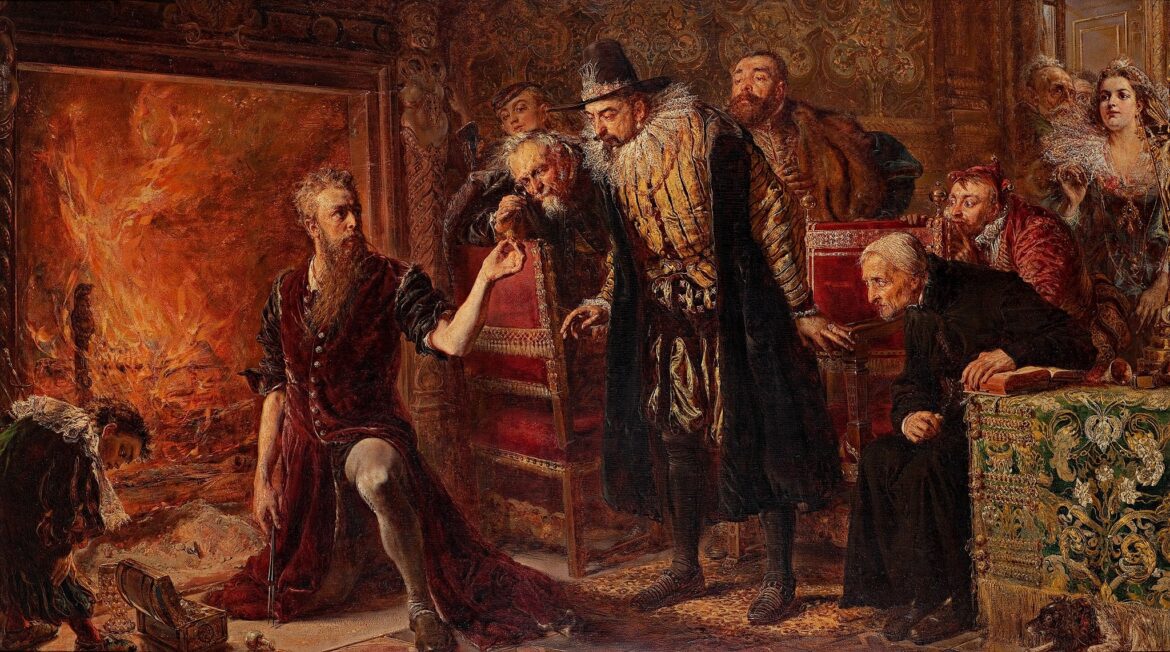Michał Sędziwój (1566-1636), known as Sendivogius Polonus, became famous in Europe for his extraordinary alchemical knowledge. At the turn of the 16th and 17th centuries he was searching for the philosopher’s stone, a substance that would cure all diseases, restore youth and, above all, enable any matter to be transformed into gold. Of course, he failed in making such a discovery, but he did carry out several useful experiments. Michał Sędziwój made interesting findings and made an important contribution to the foundations of modern chemistry.
He was born on 2 February 1566 in Łukowica near Nowy Sącz. He probably took up alchemy under the influence of doctors from Kraków, but the main influence on his development was Mikołaj Wolski, who around 1604 set up his own laboratory in Krzepice near Częstochowa and supported Sędziwój’s research. The alchemy adept also received the support of the magnates as well as King Sigismund III Vasa and the emperors, Rudolf II and Ferdinand II, thanks to which he made many scientific and diplomatic trips, from Portugal to Moscow, establishing contacts with the most eminent alchemists.
He was a gifted experimental chemist. He relied not on magic formulas but on the results of experiments. Sędziwój was well acquainted with the basic preparative techniques of his time. He wrote several alchemical treatises, which were repeatedly reprinted in Latin, German, French, Czech, English, Russian, and Polish. He was a well-known and respected person in Europe; his works were owned by, among others, Isaac Newton. In one of them, writing about the thermal product of the decomposition of saltpeter, he mentioned ” the aliment of life found in the air”, which in time was called oxygen. He was also aware of its role in the respiratory process. With this, he preceded the achievements of J. Prestley and C.W. Scheele made in the 18th century. He also knew the recipe for the separation of gold by reduction of this element from preparations. Sędziwój was one of the precursors of the idea of the so-called voltage series of metals. While in the Imperial service in Bohemia, he established lead mines in Silesia. He was also involved in metallurgy.





